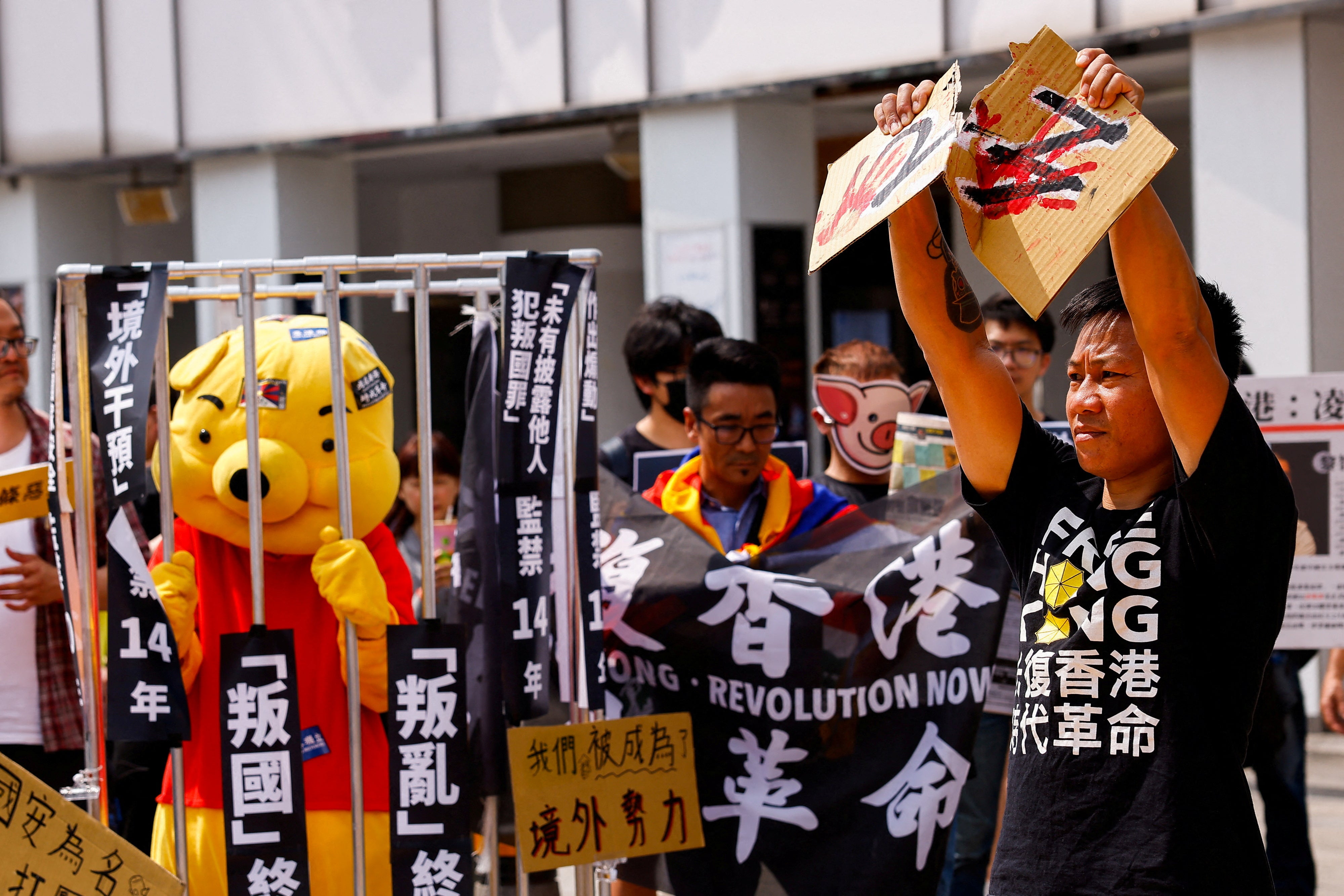Portuguese man first European citizen jailed under Hong Kong’s national security law
Joseph John spends 16 months in jail with his bail denied several times
Your support helps us to tell the story
From reproductive rights to climate change to Big Tech, The Independent is on the ground when the story is developing. Whether it's investigating the financials of Elon Musk's pro-Trump PAC or producing our latest documentary, 'The A Word', which shines a light on the American women fighting for reproductive rights, we know how important it is to parse out the facts from the messaging.
At such a critical moment in US history, we need reporters on the ground. Your donation allows us to keep sending journalists to speak to both sides of the story.
The Independent is trusted by Americans across the entire political spectrum. And unlike many other quality news outlets, we choose not to lock Americans out of our reporting and analysis with paywalls. We believe quality journalism should be available to everyone, paid for by those who can afford it.
Your support makes all the difference.A Portuguese man has been sentenced in Hong Kong for posting pro-independence content on social media, becoming the first European to be punished under the controversial China-imposed national security law.
Joseph John, also known as Wong Kin-Chung, has dual citizenship of Portugal and Hong Kong. He was sentenced to five years in jail on Thursday for “incitement to secession” under the stringent law.
Under the law, which has been used to silence critics and pro-democracy voices, secession is the offence of advocating for Hong Kong to break away from China.
John was arrested in 2022 after he returned to Hong Kong to visit his family. He was charged for posting pro-independence and anti-China content on social media.
The 41-year-old had been running social media activities and a website for a political group called the Hong Kong Independence Party. The group’s website was registered in the UK where he was previously based.
The group advocated for foreign intervention in China’s rule over Hong Kong following the 2019 pro-democracy protests.
The prosecution outlined 42 posts on the party’s social media handles that they considered “secessionist”, including calls for the “UK and US to send troops to Hong Kong” and crowdfunding to build an army for Hong Kong.
The pages were shut down in 2022 when John returned to Hong Kong to visit his ailing mother. But he was arrested by the authorities during his trip.
Following months-long investigation during which remained in custody, John pleaded guilty to “inciting secession” in February and was convicted in March.
In his sentencing trial on Thursday, Judge Ernest Lin said John had “distorted history, demonised China, and appealed to foreign countries to destroy [Hong Kong] and China by political or simply violent means”.
“Those posts lent excuses to foreign politicians ... to criticize, boycott and even suppress China and (Hong Kong) in the name of helping Hong Kong,” Mr Lin said.
He was sentenced to five years in prison under the stringent act, a common punishment for “serious” cases.

John was denied bail several times during his 16-month custody which has become a standard practice in Hong Kong for defendants in cases relating to the national security law.
He was also denied consular access, according to Portuguese officials, as Beijing does not allow dual citizenship.
Representatives from Portugal and the European Union were present in the Hong Kong District Court on Thursday.
Since the enactment of the controversial law in 2020, in response to the massive pro-democracy protests, this is believed to be the first time a European citizen has been sentenced.
However, approximately 300 people have been arrested so far under the law until 31 January 2023, according to Hong Kong Security Bureau.
The act, widely criticised by EU and United Nations as “deeply worrying”, criminalises anything that relates to treason, sabotage, sedition, the theft of state secrets, external interference and espionage with sentences ranging from several years to life imprisonment.
Critics say the act is vaguely worded and makes it easy for authorities to target individuals who criticse the authorities.

Join our commenting forum
Join thought-provoking conversations, follow other Independent readers and see their replies
Comments